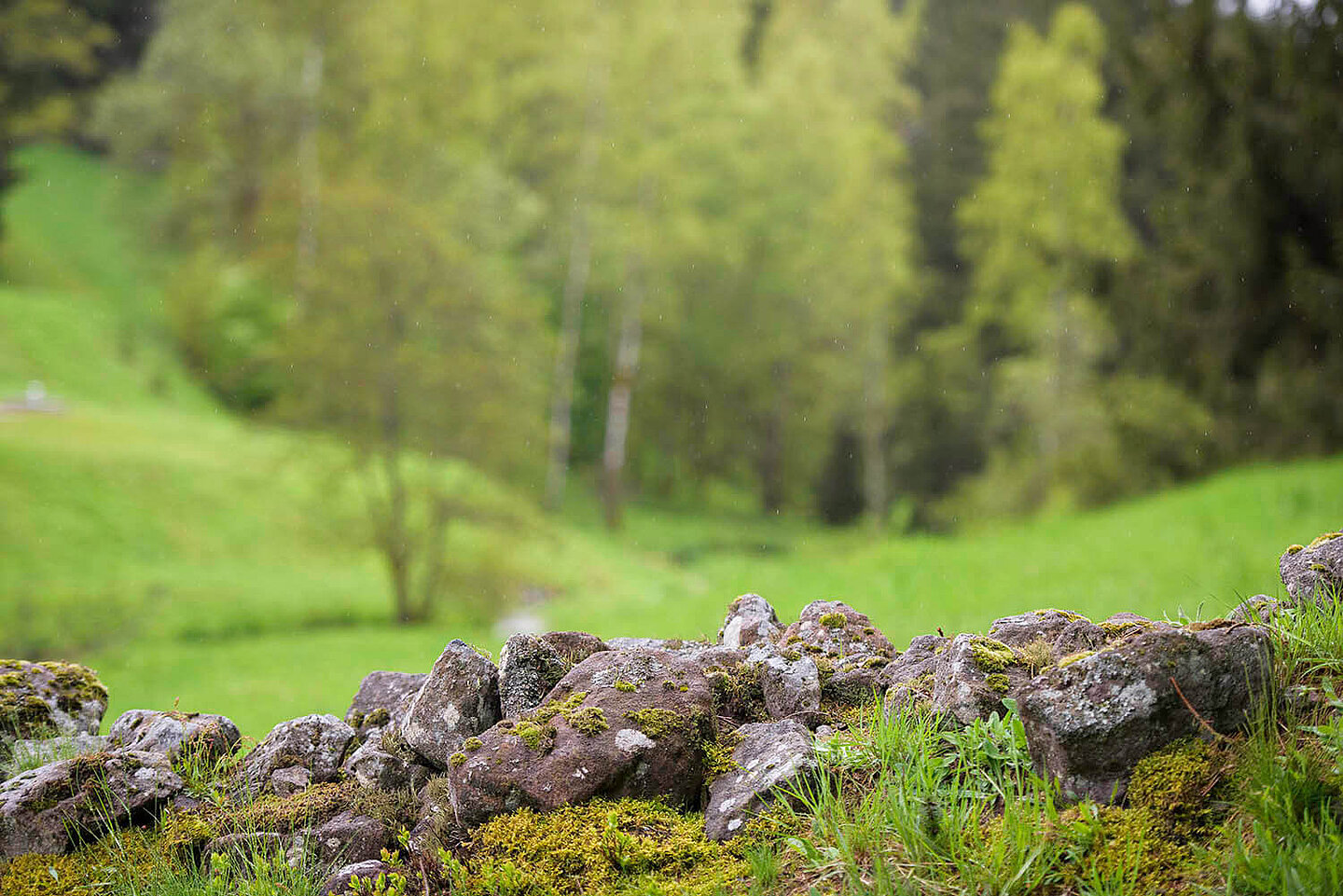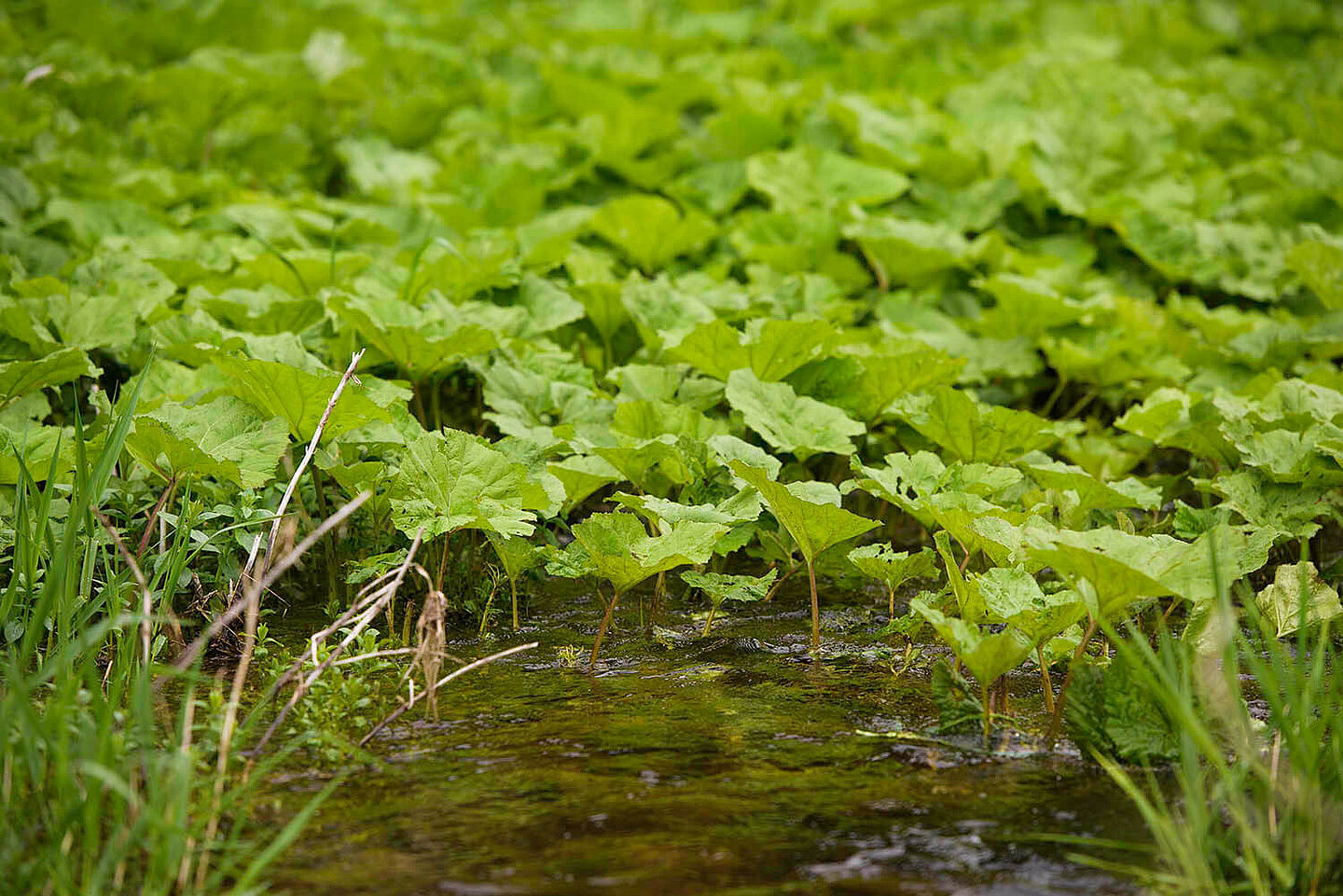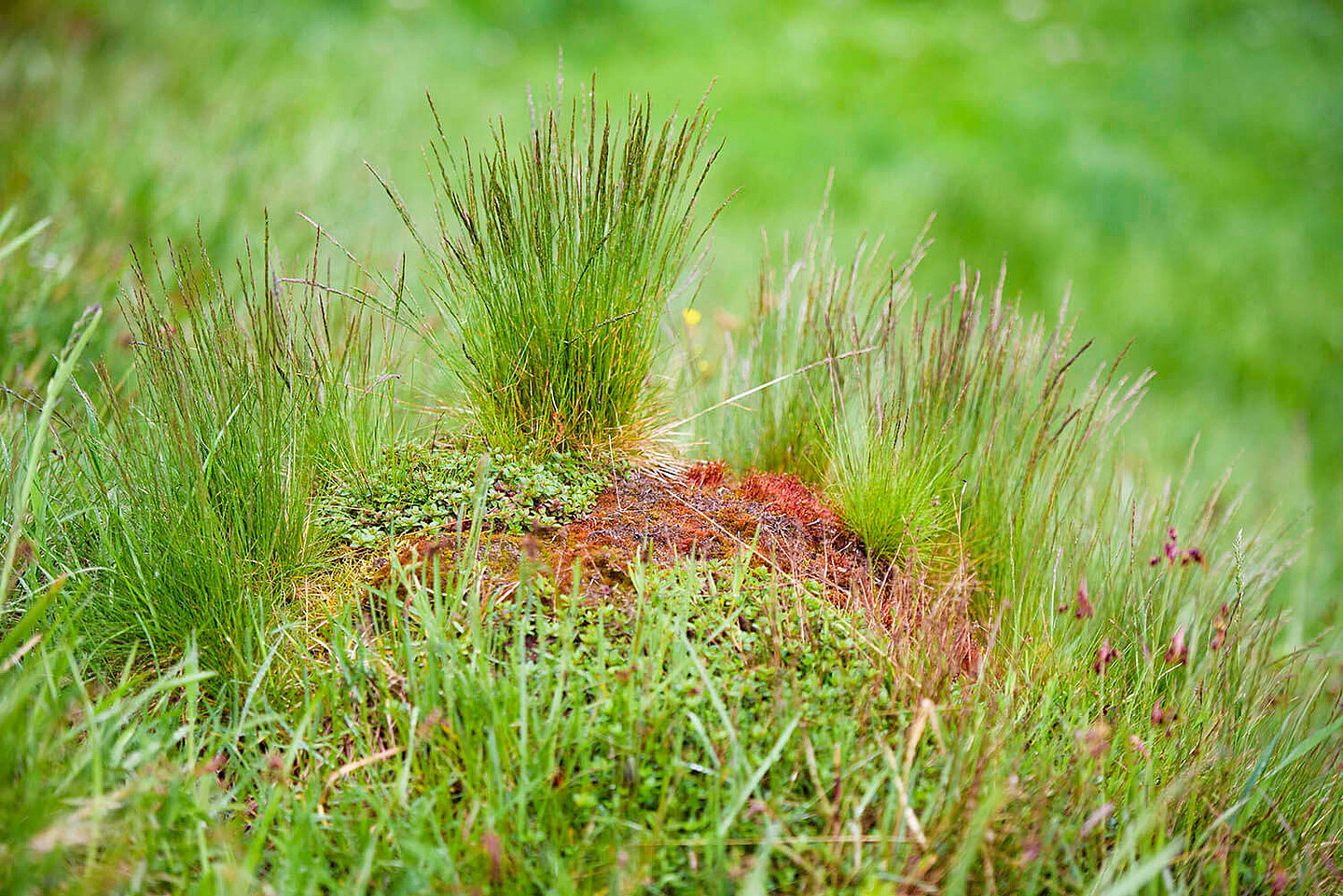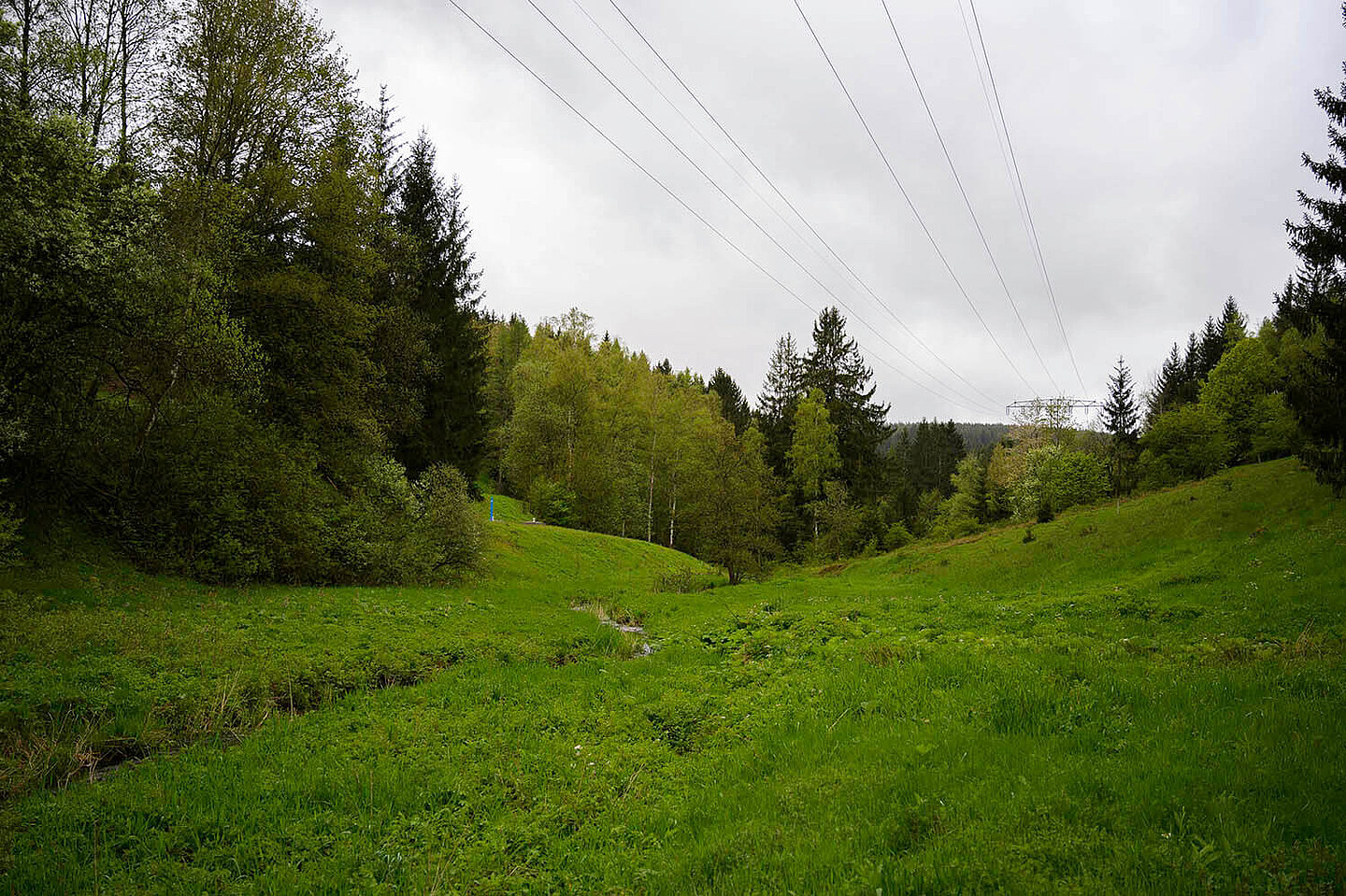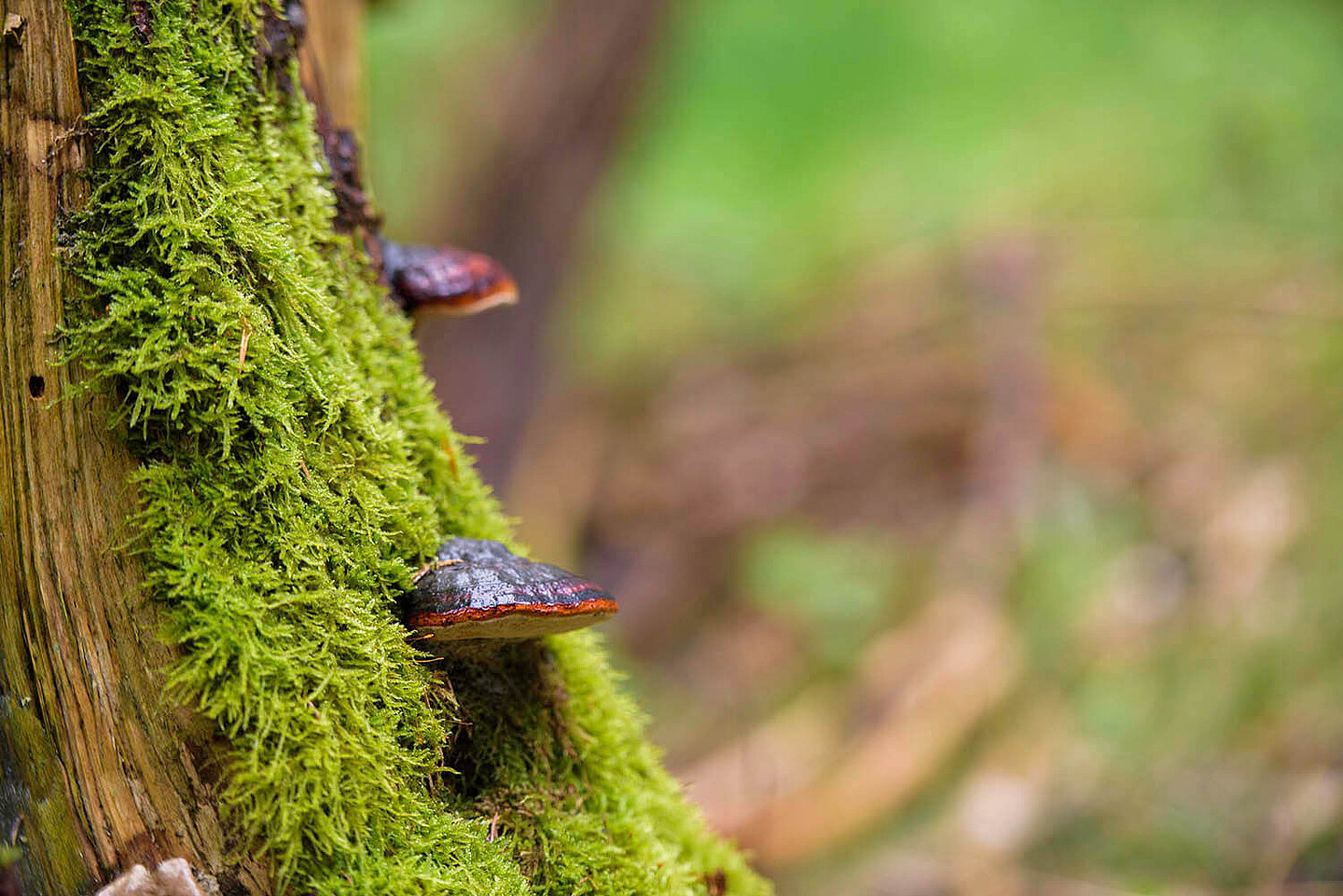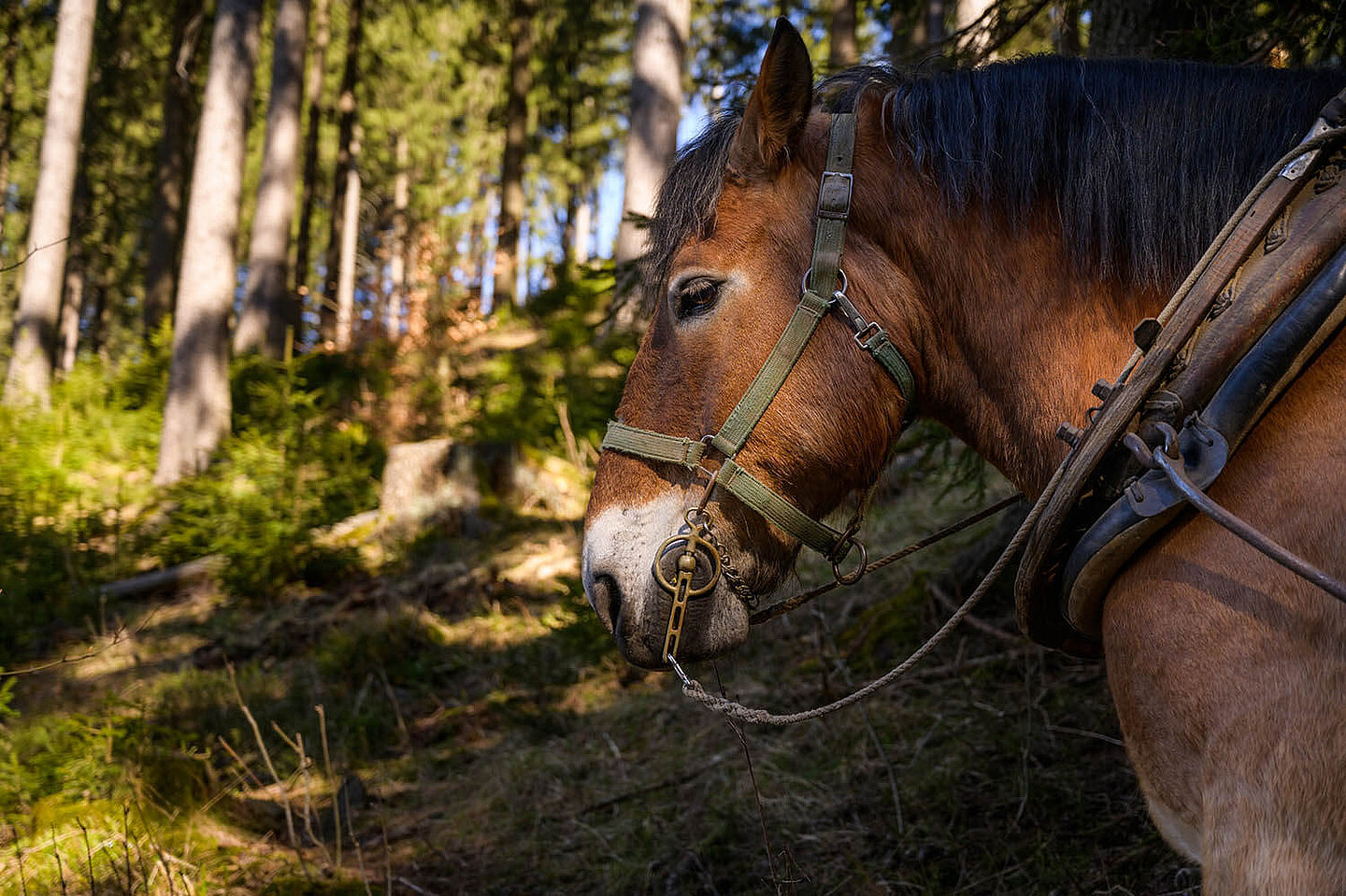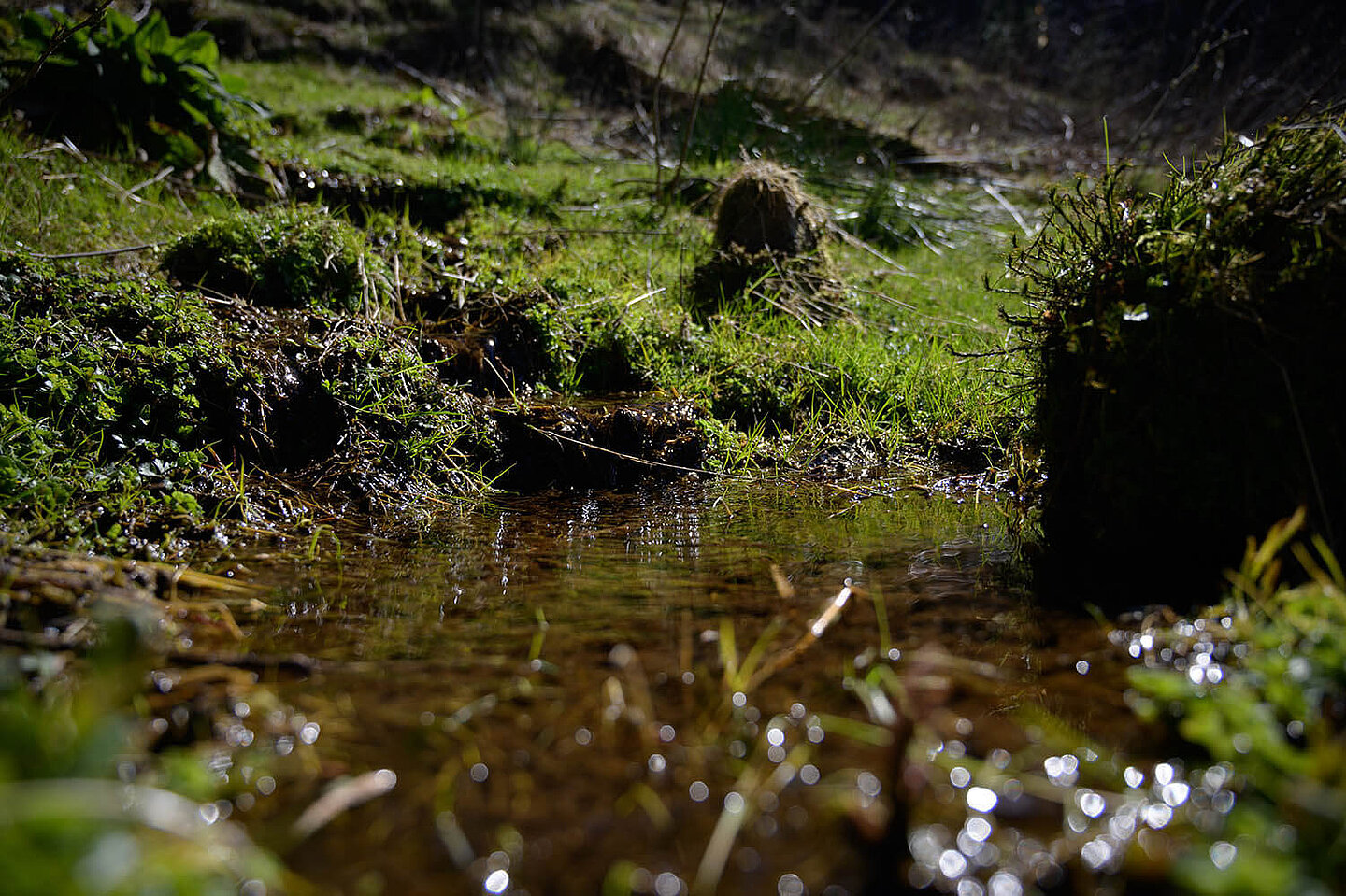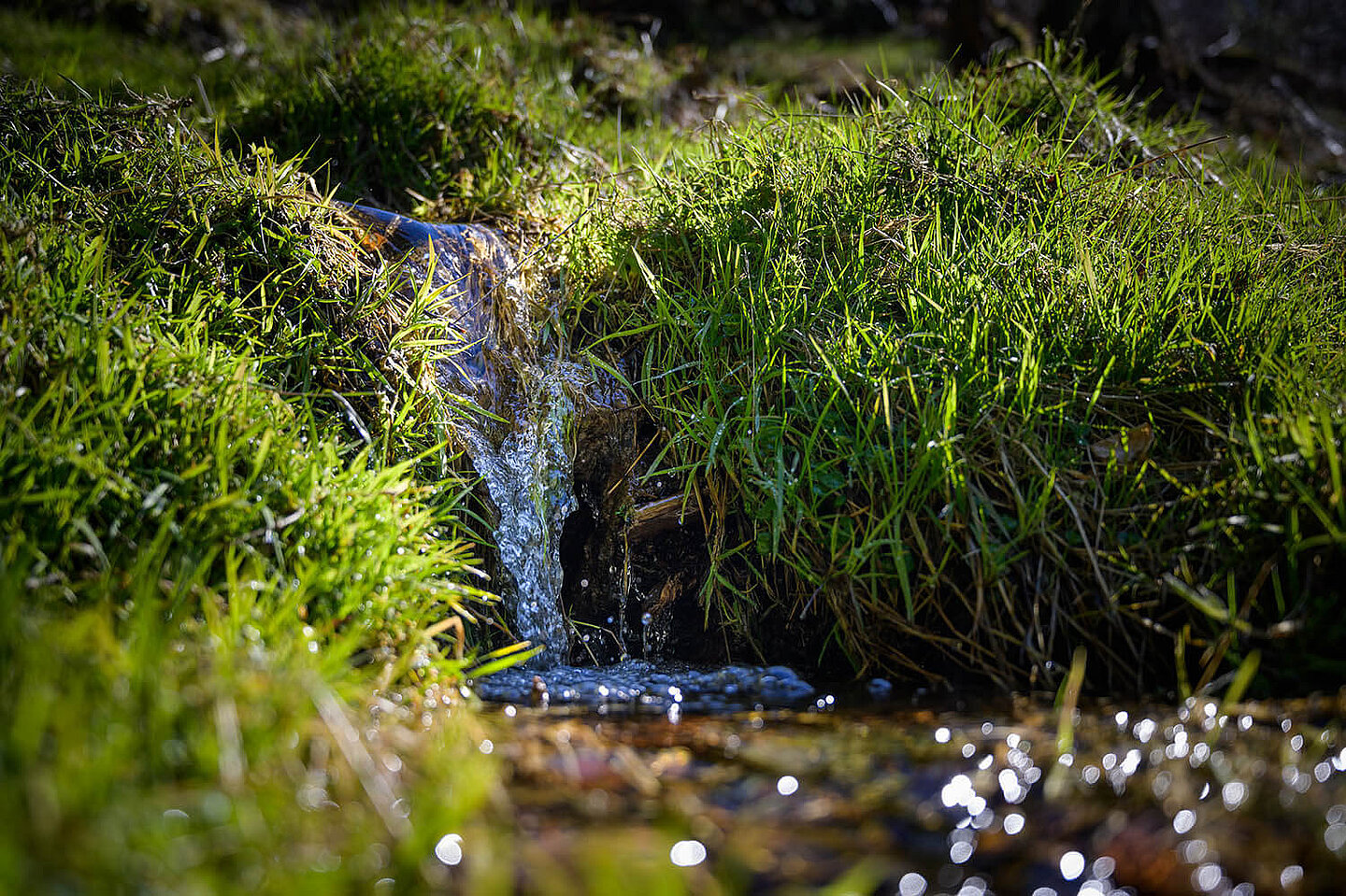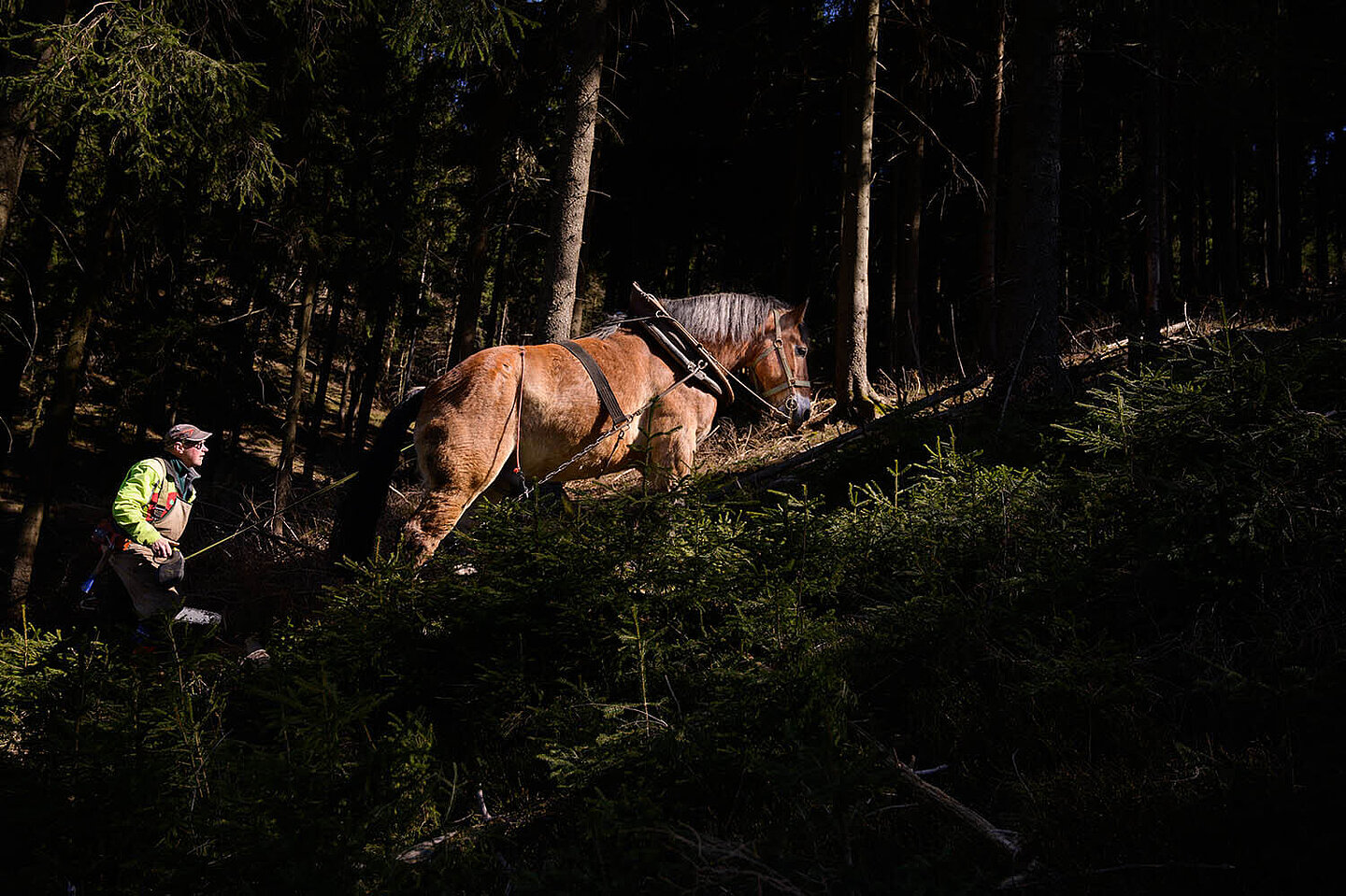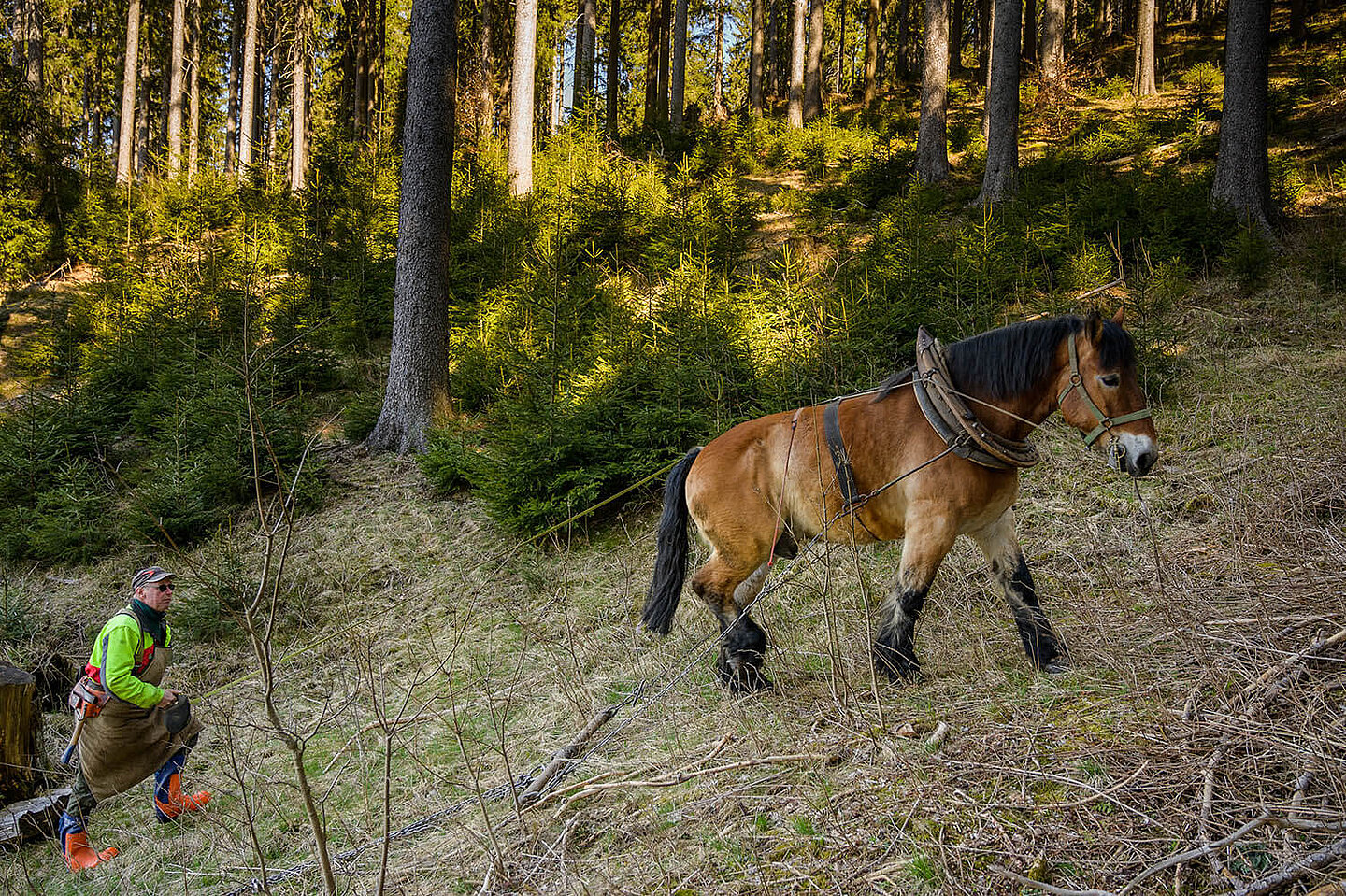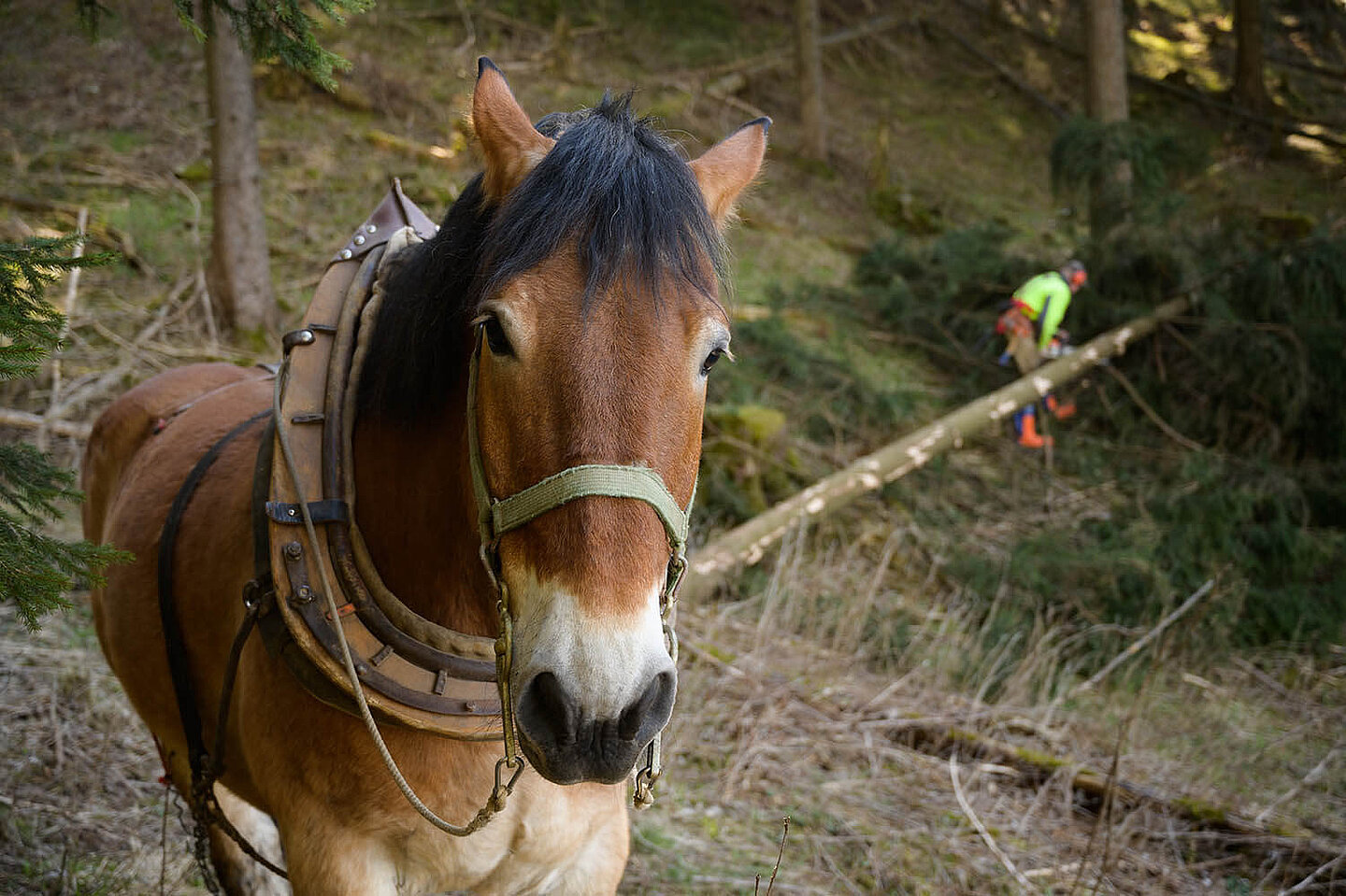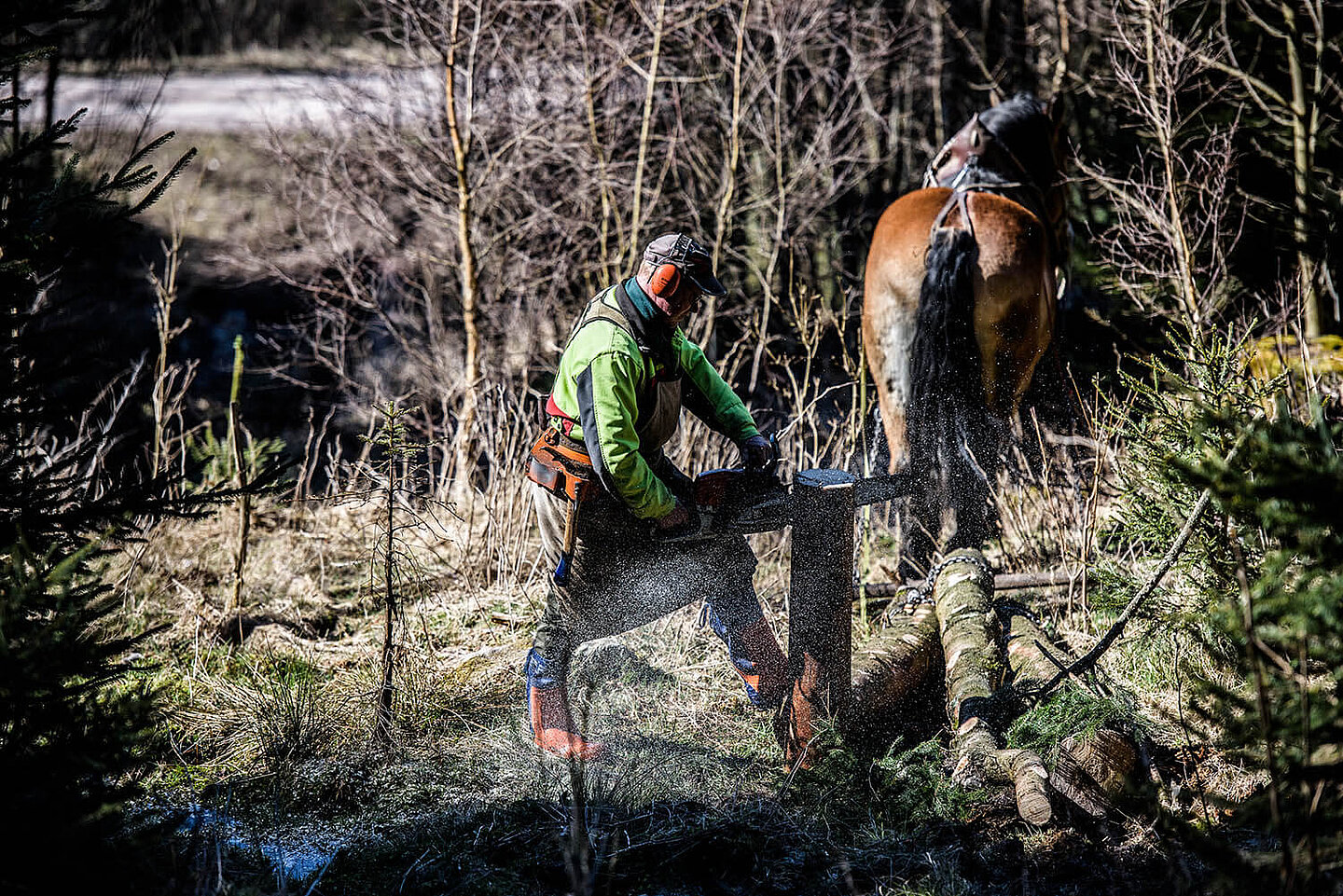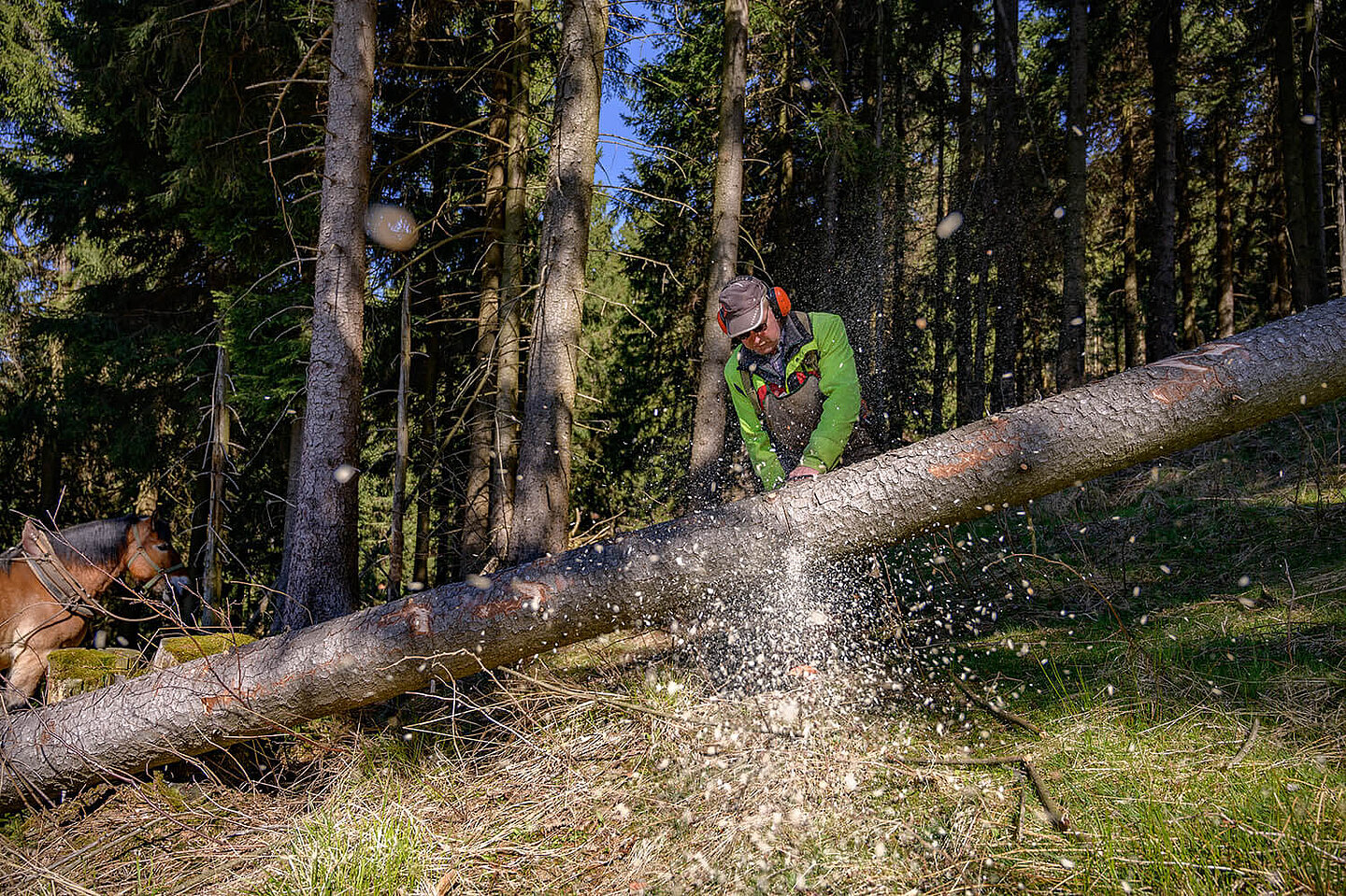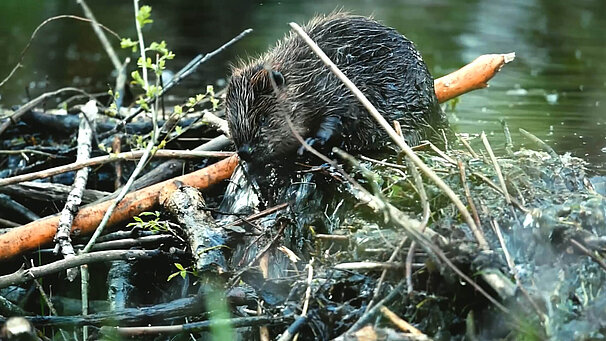The Thuringian Forest is crisscrossed by a dense mesh of rivers and streams. The headwater streams (crenal) and upper creeks (epirhithral) of the usually narrow forest brooks are the habitats of numerous adapted organisms such as fire salamanders, spiketail dragonflies, and European bullheads.
The “Wild headwater streams in the Thuringian Forest biosphere reserve” project, initiated by Naturstiftung David and cooperation partners, aims to preserve, respectively restore, the habitats of these partly threatened species. The project area extends over a length of approx. 40 km and includes the headwater stream systems of the rivers Lauter and Erle in the area of the town of Schleusingen (Hildburghausen district) and the urban district of Suhl.
The focus is on developing near-natural forest watercourse systems and their floodplains since this is the basis for cross-linking biotopes and safeguarding biodiversity. Thus, the following measures are necessary:
- Creating ecological passability of watercourses by removing obstructions from the course of the stream
- Increasing the stream bed’s structural richness by adding deadwood
- Reduction of spruce stand and promotion of mixed forests in the riparian zone to promote ecosystem-typical stream colonization and to secure the water quality in low mountain range streams in the long term
- Integrating nature preservation objectives in forestry
- Public relations work for the preservation of biodiversity in central upland areas
Apart from habitat improvement for fire salamanders and other species, the renaturation of forest streams and their floodplains leads to securing high water quality and increasing water retention in the floodplains. As a result, the project combines species conservation with the benefits for humans.
Learn more about the project at: https://www.naturstiftung-david.de/waldbach/
2019 ENL 0015
086 - Protection, restoration, and sustainable use of Natura-2000 sites
02.10.2019
30.10.2021
513.624,19
80 %
98490
Germany


